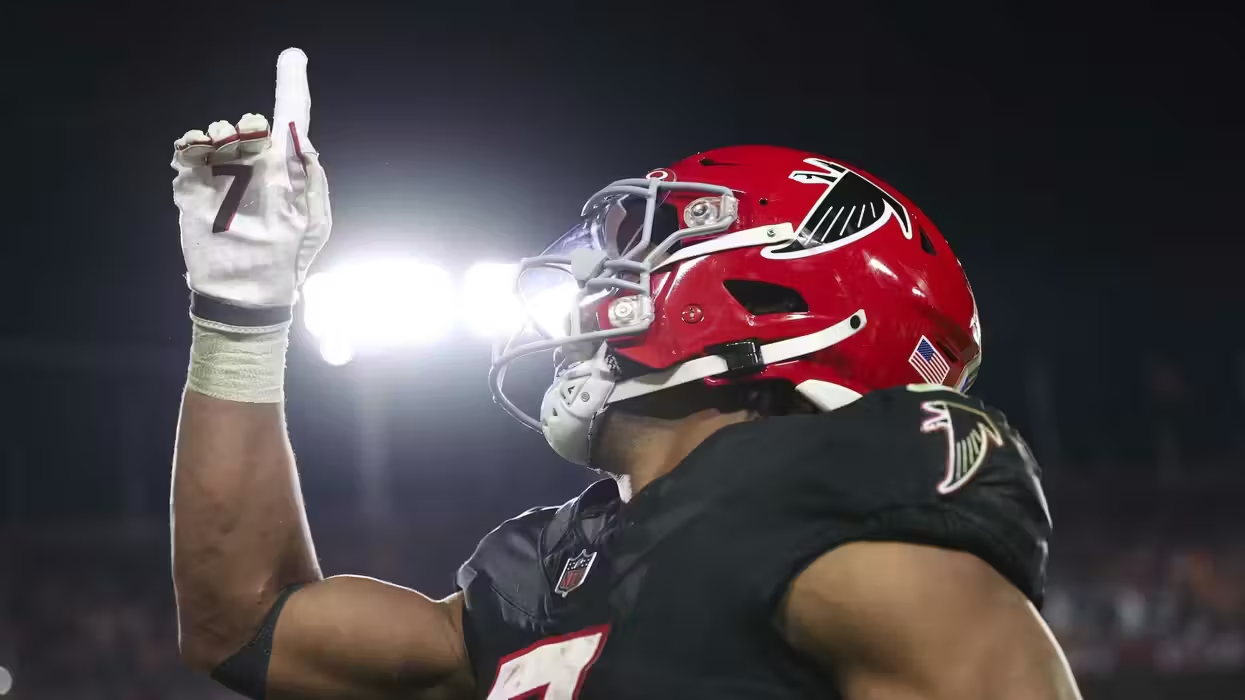
© 2025 Blaze Media LLC. All rights reserved.
You might have heard before that English can be one of the hardest languages to learn, thanks to the plethora of grammar rules -- and all the exceptions them. Well, spelling English words can be confusing too from a phonetic standpoint, and while some of these words are oddly spelled for no reason, the folks at Mental Floss have pulled together some words that do have a bit of historical reasoning.
Here are a few of them:
- Wednesday: Why are the "d" and the seemingly extra "es" in there anyway? Who says "wed-nes-day"? Apparently, there was an Anglo-Saxon god named Woden who had an honorary day with various spellings, including Wodnesdaeg. Mental Floss points out that Shakespeare tried to write some sense into people spelling it as we all say it -- Wensday -- but the "d" ultimately remained.
 (Image: Shutterstock.com)
(Image: Shutterstock.com)
- February: Again, who says "bru"? Is it supposed to mimic the brrr felt in many climates at that time of year? It appears that someone might have wanted to make the word fancier. Here's what Mental Floss wrote: "The French feverier first became English feverere, or feverell. But in the 16th and 17th centuries, a craze for all things classical caused writers to start re-Latinizing their spelling—making words look more like their ancient language sources, whatever their current pronunciation. It was a way to make your documents look more intelligent and fancy. And so, in writing, they made February look more like Februarius."
 (Image: Shutterstock.com)
(Image: Shutterstock.com)
- Receipt: At least we can comfortably say this one follows the "i" before "e" except after "c" rule. According to Mental Floss, the odd "p" comes from the "Latinzing craze" as well. Similar instances where this happened is with "debt," "doubt" and "salmon."
 (Image: Shutterstock.com)
(Image: Shutterstock.com)
- Colonel: How did something that sounds like "kernel" end up being spelled this way? There's no "o" sound or middle "l" and where does that "r" sound come from? Mental Floss stated that it is the result of a compromise between two other spellings. The French word was spelled "coronel" while the Italian was "colonel." Italian spelling won out for looks but the "r" prevailed for pronunciation.
 Shoulder strap indicating a colonel in the Union army. (Image: Wikimedia)
Shoulder strap indicating a colonel in the Union army. (Image: Wikimedia)
- Jeopardy: What is because the French for "divided game" is iu parti, sounding like jeu parti? That's correct. Several spelling iterations came afterward before it settled on this version for the game show.
 Software developer Ken Jennings from Salt Lake City, Utah, right, poses for a photo with Jeopardy host Alex Trebek. (Photo: AP/Sony Pictures Television)
Software developer Ken Jennings from Salt Lake City, Utah, right, poses for a photo with Jeopardy host Alex Trebek. (Photo: AP/Sony Pictures Television)
Check out the rest of the words detailed by Mental Floss here.
Featured image via Shutterstock.com.
Want to leave a tip?
We answer to you. Help keep our content free of advertisers and big tech censorship by leaving a tip today.
Want to join the conversation?
Already a subscriber?
more stories
Sign up for the Blaze newsletter
By signing up, you agree to our Privacy Policy and Terms of Use, and agree to receive content that may sometimes include advertisements. You may opt out at any time.
Related Content
© 2025 Blaze Media LLC. All rights reserved.
Get the stories that matter most delivered directly to your inbox.
By signing up, you agree to our Privacy Policy and Terms of Use, and agree to receive content that may sometimes include advertisements. You may opt out at any time.






